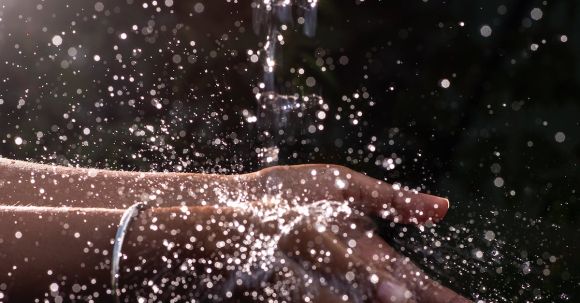Water is a precious resource that is essential for all life on Earth. As our population grows and climate change impacts our environment, it is becoming increasingly important to conserve water, especially in outdoor spaces such as gardens, lawns, and parks. By implementing sustainable water conservation practices, we can ensure that we are using water efficiently and responsibly. In this article, we will explore some strategies and techniques for sustainable water conservation in outdoor spaces.
Choosing Native and Drought-Tolerant Plants
One of the most effective ways to conserve water in outdoor spaces is by choosing native and drought-tolerant plants. Native plants are adapted to the local climate and require less water than exotic species. Drought-tolerant plants, on the other hand, have evolved to survive in arid conditions and can thrive with minimal watering. By incorporating these plants into our outdoor spaces, we can reduce the amount of water needed for irrigation.
Mulching
Mulching is another important practice for water conservation. By covering the soil with a layer of organic mulch, such as wood chips or straw, we can prevent water evaporation, suppress weed growth, and improve soil moisture retention. Mulch acts as a barrier, keeping the soil cool and moist, thereby reducing the need for frequent watering. Additionally, organic mulch improves soil structure and fertility over time.
Smart Irrigation Systems
Traditional irrigation methods, such as sprinklers, can be inefficient and wasteful. A more sustainable approach is to install a smart irrigation system. These systems use weather data and soil moisture sensors to determine when and how much water to apply. By adjusting irrigation schedules based on real-time conditions, smart irrigation systems can significantly reduce water waste. Additionally, some systems can be programmed to water specific areas only, avoiding unnecessary watering of sidewalks or driveways.
Rainwater Harvesting
Rainwater harvesting is an excellent way to conserve water in outdoor spaces. By collecting and storing rainwater, we can reduce our reliance on municipal water supplies. Rain barrels or cisterns can be installed to capture rainwater from rooftops, which can then be used for watering plants, washing outdoor furniture, or even for non-potable uses such as flushing toilets. Investing in a rainwater harvesting system not only helps save water but also provides a sustainable water source during dry periods.
Proper Maintenance
Proper maintenance of outdoor spaces is crucial for water conservation. Regularly inspecting and repairing leaks in irrigation systems can prevent water waste. Weeds should be promptly removed as they compete with plants for water. Additionally, over-fertilizing plants can lead to excessive growth, which in turn requires more water. By adopting good maintenance practices, we can ensure that water is used efficiently in our outdoor spaces.
Conclusion: Making a Difference
In conclusion, sustainable water conservation in outdoor spaces is essential for protecting our environment and ensuring a sustainable future. By choosing native and drought-tolerant plants, using mulch, installing smart irrigation systems, harvesting rainwater, and properly maintaining our outdoor spaces, we can make a significant difference in water conservation efforts. Every small action counts, and together we can create a more water-efficient world. Let’s take responsibility and take action today!





